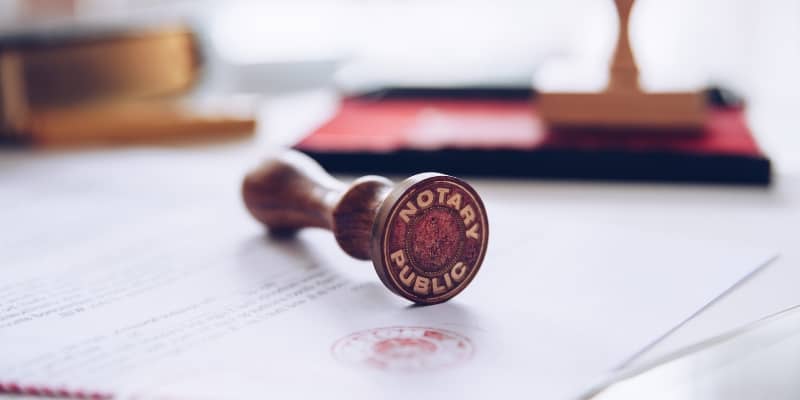RAI Experts, LLC is a leading provider of notary services dedicated to unlocking the secrets of seamless document verification. Document verification is crucial in any business transaction, ensuring the authenticity and integrity of important legal and financial documents. However, the process can often be time-consuming and complicated. That’s where RAI Experts, LLC comes in. With a team of experienced and knowledgeable professionals, we are committed to providing efficient and reliable notary services that meet the highest industry standards. This blog will guide you through document verification, sharing valuable insights and tips to make your experience smooth and hassle-free.
Understanding the Notary's Role:
At its core, a notary public acts as an impartial witness to the signing of important documents. Their primary role is to verify the individuals’ identity, ensure their willingness to sign the document and administer oaths or affirmations when necessary. Understanding the notary’s role is the first step in appreciating the importance of their services in legal transactions.
Verification of Signer Identity:
One of the secrets behind notary services is the meticulous verification of the signer’s identity. Notaries are trained to scrutinize government-issued identification, such as driver’s licenses or passports, to confirm the identity of the individuals signing the document. This step is crucial in preventing fraud and ensuring the parties involved are who they claim to be.
Administering Oaths and Affirmations:
In certain situations, notaries may be required to administer oaths or affirmations to individuals signing documents. This is particularly common in legal affidavits or sworn statements. Notaries can administer these affirmations, adding solemnity and legal significance to the papers.
Maintaining Neutrality and Impartiality:
The principle of neutrality and impartiality binds notaries. Their role is not to provide legal advice or advocate for any party involved in the transaction. Instead, they act as neutral witnesses to ensure the integrity of the document-signing process. This impartiality enhances the credibility and reliability of the notarized documents.
Recording Notarizations:
Notaries keep detailed records of each notarization they perform. This includes information about the document, the individuals involved, the date and location of the notarization, and any fees charged. This meticulous record-keeping safeguards against potential disputes and provides a comprehensive trail of the notarization process.
Types of Notarial Acts:
Notary services encompass various notarial acts, each serving a specific purpose. Common notarial acts include acknowledgments, where the signer declares they willingly signed the document; jurats, which involve the administration of an oath or affirmation; and copy certifications, where the notary verifies the authenticity of a reproduced document.
Mobile Notary Services:
A secret to unlocking the convenience of notary services is the availability of mobile notary services. Mobile notaries can travel to the location of the signers, whether it’s a home, office, or another agreed-upon venue. This flexibility is especially valuable for individuals with busy schedules or those unable to visit a traditional notary office.
Electronic Notarization:
Advancements in technology have led to the emergence of electronic notarization. Some jurisdictions allow notaries to perform notarial acts electronically using secure digital platforms. Electronic notarization provides added convenience and expedites document signing while adhering to stringent security measures.
Crossing State Borders:
Individual states typically appoint notaries, and their authority is limited to the geographical boundaries of that state. However, some states allow notaries to perform notarial acts for documents that will be used in other states. Understanding the rules and limitations regarding crossing state borders is crucial for ensuring the validity of notarized documents.
Educating Yourself on Notary Requirements:
To fully unlock the benefits of notary services, you must educate yourself on your jurisdiction’s specific requirements and regulations. Each state may have distinct rules governing notarial acts, identification requirements, and allowable fees. Familiarizing yourself with these regulations will contribute to a seamless and legally sound document verification process.
Conclusion:
Notary services play a vital role in safeguarding the integrity and legality of important documents. The secrets behind effective notarization include the meticulous verification of signer identity, administering oaths and affirmations when necessary, maintaining neutrality and impartiality, recording notarizations, offering various types of notarial acts, providing mobile and electronic notary services, understanding the limitations of crossing state borders, and educating oneself on notary requirements. By unlocking these secrets, individuals can confidently navigate the document-signing process, knowing that the credibility and authority of notary services back their transactions.








